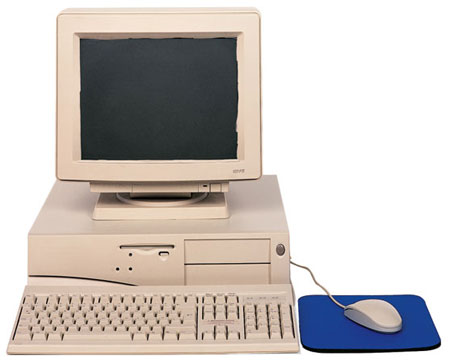Change is less stressful when anticipated. Keep abreast of recent
developments within your industry, familiarize yourself with new technology,
try to gain experience of as many different skills as possible, and maximize
the options available to you.
Reassessing markets
The ability to anticipate change depends on recognizing shifts in
supply and demand in the labour market. This is not easy, if only because the
advent of computers has meant that changes occur much more rapidly than in the
past. There are, however, a few key communication and computer technologies,
including the Internet and multimedia, that are widely available and drive many
other developments. Keeping abreast of changes within these technologies can
maximize job prospects and minimize stress by giving you the ability to change
with the employment market.
Understanding new technology
Computers are fundamental to 99 per cent of the world’s businesses.
But many senior managers who are responsible for purchasing hardware and
deciding how to use it have scant knowledge of how much it can do. Courses
covering all stages are available to help you improve your computer skills
– utilize them, since computer literacy is essential for employees at
all levels.
Surfing the internet
The advent of e-mail and the World Wide Web on the Internet is
rapidly changing the way we all work.

Relocating offices
Information technology provides more flexibility in the way we work
today by enabling individuals to decide how and where they work. Those whose
jobs require little more than a computer and a phone can work as easily in an
airport lounge or the back seat of a car as in a traditional office. Many
people now choose to work at home. In this way they can work without the usual
interruptions, while avoiding the cumulative stress of commuting and reducing
travel costs. Everyday chores such as shopping and settling bills are
increasingly being carried out by computer from “home
offices”.
Working from home
Try to locate your home office in a room set aside for that
purpose, as far as possible from living and sleeping areas, so you can leave
work behind at the end of the day. Many people who work at home convert a
garage or garden shed into an office.

Diversifying careers
One spin-off from the rapid changes occurring in the workplace is
the opportunity to enjoy several different careers during a lifetime.
Traditionally, people learned a trade or profession that they then practised
throughout their working life. Today, the demand for skills is changing so fast
that this is no longer very likely to happen.
Adaptability and flexibility are vital to minimize the stress of
redundancy. Anticipate changes, and be prepared for them wherever possible.
Retrain if necessary, and look on an unexpected job loss as an
“opportunity”, allowing you to pursue a new career doing
something that really interests you.
TIP
Be prepared to change career at least once in your working
life.
TIP
When learning new technology, start slowly and build
confidence.
TIP
Try to set up an office near other people: isolation can be
stressful.
TIP
Make sure your home office is separate from your living space.
TIP
It is never too late to learn a new skill such as computing.